Homeless Teen Curfew Arrests at Issue in Atlanta Ordinance
 (APN) ATLANTA – On Monday, January 24, 2022, the Public Safety/Legal Administration Committee of the City Council of Atlanta voted to hold, or defer action with respect to, an ordinance sponsored by Councilman Byron Amos (District 3) that seeks to exempt homeless youth and emancipated minors from curfew laws in Atlanta.
(APN) ATLANTA – On Monday, January 24, 2022, the Public Safety/Legal Administration Committee of the City Council of Atlanta voted to hold, or defer action with respect to, an ordinance sponsored by Councilman Byron Amos (District 3) that seeks to exempt homeless youth and emancipated minors from curfew laws in Atlanta.
The proposed ordinance, 22-O-1076, is co-sponsored by Councilman Michael Julian Bond (Post 1-at-large).
Numerous other U.S. cities and counties have already adopted this best practice, including, for example: Anoka County, Minnesota; Dakota County, Minnesota; Hallandale Beach, Florida; Harrisburg, Pennsylvania; Hinckley, Minnesota; Houston, Texas (police required to determine youth not homeless as a condition to arrest); and Miami, Florida.
https://www.anokacounty.us/3411/County-Ordinances
https://www.co.dakota.mn.us/LawJustice/Ordinances/Documents/CountyOrdinance122.pdf
https://library.municode.com/tx/houston/codes/code_of_ordinances?nodeId=COOR_CH28MIOFPR_ARTVJUCU
https://codelibrary.amlegal.com/codes/hinckley/latest/hinckley_mn/0-0-0-2684
https://hallandalebeachfl.gov/DocumentCenter/View/957/Juvenile-Curfew
https://www.miamidade.gov/global/police/juvenile-curfew.page
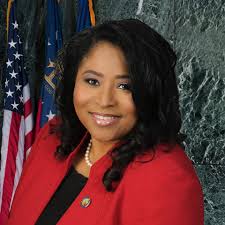 At the suggestion of Councilwoman Andrea Boone (District 10), the Committee has decided to hold a Work Session to more broadly study the issue of youth homelessness. A date has not yet been announced.
At the suggestion of Councilwoman Andrea Boone (District 10), the Committee has decided to hold a Work Session to more broadly study the issue of youth homelessness. A date has not yet been announced.
“I ask my colleagues to definitely support this. At the end of the day, being arrested because you’re homeless and violating curfew should not be something that is added to your list of the troubles,” Amos said in Committee.
“Hopefully this will spark a bigger and more robust conversation on what we do with unhoused and especially with our children as well,” Amos said.
“If you’re out past curfew and you don’t have a home, where do you go to? Yes there are services, but if you’re choosing not to take advantage of those services, then that’s another issue. Being arrested–that’s what we have to remember–being arrested should not be a by-product of being unhoused,” Amos said.
Currently, Atlanta’s curfew laws make it a crime for children sixteen and under to be outside between the hours of 11 p.m. and 6 a.m., with certain exceptions.
The six curfew exemptions currently on the books include (1) being accompanied by a parent or guardian, (2) running an errand for a parent, (3) going to or from work, (4) going to or from a school activity, (5) going to or from a First Amendment activity (which could be a protest, or a prayer or other religious activity), and (6) engaging in interstate travel.
The proposed ordinance would add two new exemptions: if the youth is homeless or if the youth is legally emancipated.
Amos introduced the ordinance as a personal paper at the Full Council Meeting on Tuesday, January 18, 2022; and Council President Doug Shipman referred it to Public Safety/Legal Administration Committee.
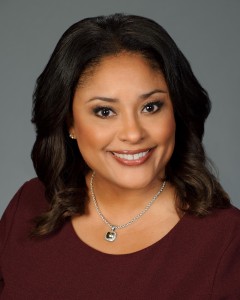 Councilwoman Marci Overstreet (District 11) asked whether decriminalizing being homeless at night would have “collateral damage”.
Councilwoman Marci Overstreet (District 11) asked whether decriminalizing being homeless at night would have “collateral damage”.
“How does this play into what we’ve been seeing as a trend in recent days where maybe gang members or older repeat violators are literally asking or insisting that younger juveniles commit certain crimes… because they know that they may be waived or that they may have a different course than an older repeat offender may have?” Overstreet said.
“I, too, would never want to, you know, I don’t want to criminalize homeless, and I don’t want to criminalize poor – I know that’s where our cashless bonds came from,” Overstreet said.
“I would definitely like to get information on some of our homeless providers,” Councilwoman Boone said.
“This is a very serious matter. Homelessness is a real issue in the City of Atlanta and we don’t need to put a Band-Aid on it,” Boone said.
“I would like for us to do the proper thing, which would be to hold a work session on this, our children, our precious resources, our youth and teenagers… so we can get with those on the outside, the caretakers of the homeless youth, those that have worked in this space for nearly thirty years, I would like to hear from them for their suggestions, because we can’t criminalize the homeless.
“I think we’re on the right path of not wanting to criminalize homeless youth, of course they’re the victims here, I don’t want them to be further preyed upon,” Overstreet said.
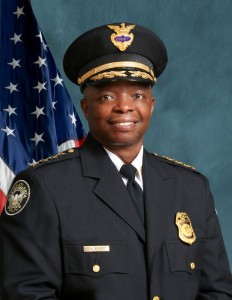 But eliminating the possibility of arrest for curfew is not a free pass to commit all crimes, according to APD Chief Rodney Bryant.
But eliminating the possibility of arrest for curfew is not a free pass to commit all crimes, according to APD Chief Rodney Bryant.
“If they committed a crime, we would charge them. We do our work to make sure that is not the case,” Chief Bryant said.
Chairman Dustin Hillis (District 9) said he was worried about “nefarious” children claiming to be homeless.
“Certainly, I agree with the intent of this… but how would APD determine if someone was truly homeless and not an offender perhaps who uses for nefarious reasons to claim exemption from enforcement of the current law?” Hillis asked.
“Right now, to be honest with you, most homeless, we have a significant team (inaudible) outreach and many of the beat officers are quite familiar with the homeless in our community, and so there’s a level of understanding there as well,” APD Chief Rodney Bryant told the Committee.
“When we recognize a person as homeless, by no means is our first (inaudible) to make an arrest for being homeless. If we are arresting anyone, there must be more significant crimes involved,” Chief Bryant said.
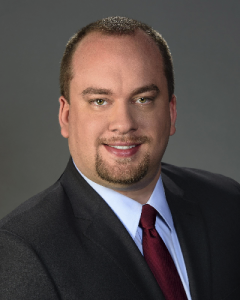 “An APD officer encounters someone who is out past curfew and they told that APD officer, well, I don’t have a curfew because I’m homeless, perhaps using that nefariously – they’re not really homeless, they have a home, how would APD determine that to be true?” Hillis asked.
“An APD officer encounters someone who is out past curfew and they told that APD officer, well, I don’t have a curfew because I’m homeless, perhaps using that nefariously – they’re not really homeless, they have a home, how would APD determine that to be true?” Hillis asked.
“So, we’ll do a background check, I mean, that person is a child, a minor. We would still do an outreach to try to get them some help,” Bryant said.
Under the current law, APD is empowered to determine whether any of the existing exemptions apply. It is not immediately clear why the City would legislate how to verify a homelessness exemption, but not any of the other exemptions,
While it is also not clear how many “nefarious” youth are going on Municode.com to research available exemptions, there are already exemptions on the books that are unverifiable.
For example, if a youth says they are on their way to a First Amendment activity, which could be a one-man prayer or a one-man protest, who is to say they aren’t?
“People can already cite exemptions, as they state, but it’s up to police to trust or to verify,” Amos said.
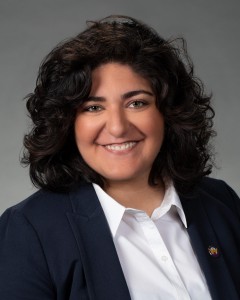 Councilwoman Liliana Bakhtiari (District 5), not a Committee Member, was on the call. Prior to joining the Council, she was an outreach team contractor for the City of Atlanta’s Continuum of Care / Partners for Home, placing homeless people in hotels during the COVID-19 / SARS-CoV-2 pandemic.
Councilwoman Liliana Bakhtiari (District 5), not a Committee Member, was on the call. Prior to joining the Council, she was an outreach team contractor for the City of Atlanta’s Continuum of Care / Partners for Home, placing homeless people in hotels during the COVID-19 / SARS-CoV-2 pandemic.
Bakhtiari suggested that APD might benefit from a definition of homelessness.
Bakhtiari also asked, in general, whether APD is diverting homeless offenders to the Policing Alternatives and Diversion Initiative (PAD). Bryant said that an upcoming APD training would cover the issue of diversion.
PAD Executive Director Moki Macias supports the curfew exemption ordinance.
“I think identifying youth experiencing homeless or those emancipated as not subject to curfew enforcement makes sense,” Macias wrote in an email, “and have no specific concerns related to the legislation.”
PAD currently only works with adults ages eighteen and older, Macias added.
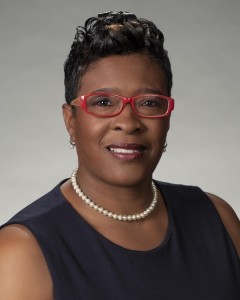 Councilwoman Keisha Waites (Post 3-at-large) said she believes there is no lack of funding or beds for homeless teenagers. “It’s not a funding or a beds issue,” she said.
Councilwoman Keisha Waites (Post 3-at-large) said she believes there is no lack of funding or beds for homeless teenagers. “It’s not a funding or a beds issue,” she said.
Waites claimed that many homeless teenagers are choosing not to stay at shelters because they “are of the age and mentality” that they do not want to follow rules.
Waites said she believes “we have an obligation to ensure that they are not on the street but are in fact supervised” during nighttime hours.
Councilwoman Waites wants the City of Atlanta to detain homeless youth and bring them to shelters; and to continue to arrest homeless youth who do not stay at the shelters.
Waites said detaining or arresting homeless youth will keep them safe from predators.
(END / Copyright Atlanta Progressive News / 2022)